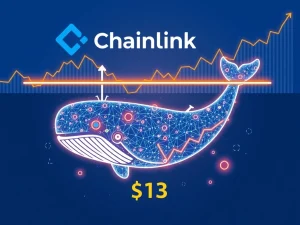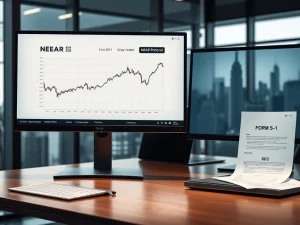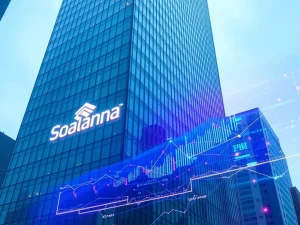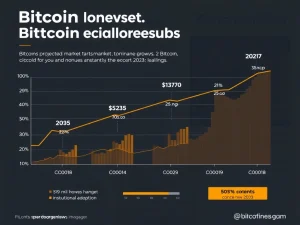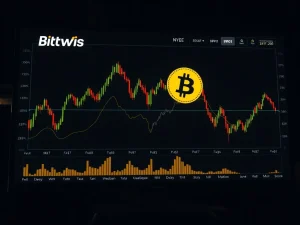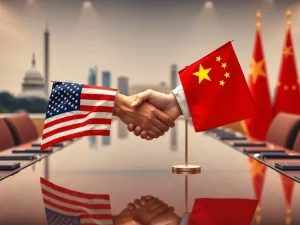Crucial Crypto News Today: Solana ETF Approved, AML Rules Updated, Tether Reaches 500M Users
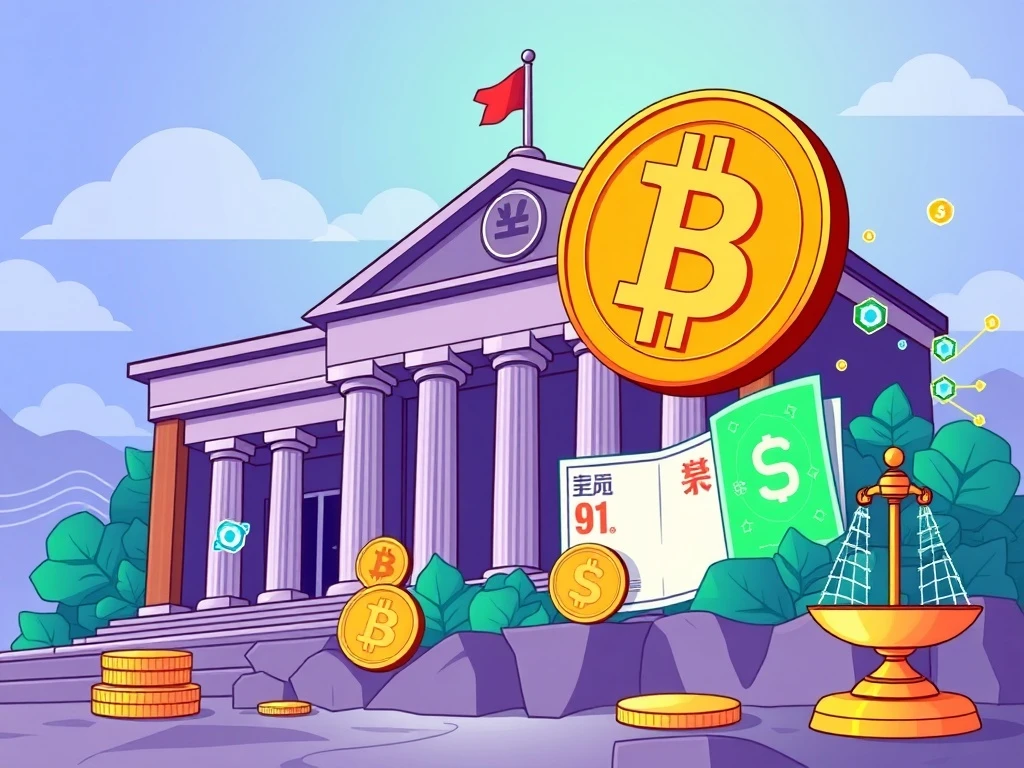
Are you eager to know what happened in the cryptocurrency world today? Stay informed with our latest roundup of significant events. Today’s **Crypto News Today** highlights key developments impacting Bitcoin price, blockchain innovation, DeFi, NFTs, Web3, and global crypto regulation. We cover crucial updates that shape the digital asset landscape, providing essential insights for every enthusiast.
US Congress Revamps AML Rules: A Significant Shift in **Blockchain Regulation**
In a major legislative move, the US Congress is actively working to modernize anti-money laundering (AML) regulations. Lawmakers aim to update reporting thresholds that have remained unchanged for decades. Specifically, a bipartisan group of US senators, led by Senate Banking Committee Chair Tim Scott (R-S.C.), introduced new legislation. This bill seeks to update the Bank Secrecy Act, which serves as the cornerstone of the country’s AML framework.
The Bank Secrecy Act, enacted in 1970, mandates financial institutions to assist federal authorities. These institutions must detect and prevent financial crimes. Such crimes include money laundering, terrorist financing, and other illicit activities. The proposed legislation, called the STREAMLINE Act, would significantly raise these reporting thresholds. This marks the first adjustment in over 50 years.
Specifically, the bill increases the Currency Transaction Report (CTR) threshold from $10,000 to $30,000. Furthermore, it raises the Suspicious Activity Report (SAR) thresholds from $2,000 to $3,000 and from $5,000 to $10,000. The Treasury Department will also adjust these amounts every five years to account for inflation. Under existing law, financial institutions file CTRs for cash transactions above $10,000. They also file SARs for transactions ranging from $2,000 to $5,000, depending on suspicion levels. Senator Pete Ricketts, a bill supporter, emphasized the necessity of these changes. He stated, “After more than 50 years of inflation, the Bank Secrecy Act’s reporting thresholds are badly outdated.” He added that the new bill “cuts red tape for banks and credit unions.” Importantly, it ensures “law enforcement still has the tools they need to do their job.” US-based crypto exchanges, including Coinbase and Kraken, must also comply with the Bank Secrecy Act. This **AML Rules Update** directly impacts their operations.
Hong Kong Leads the Way with First Spot **Solana ETF Hong Kong** Approval
Hong Kong has once again demonstrated its progressive stance on digital assets. The city approved its first spot Solana ETF, marking a significant milestone. This approval makes Solana the third cryptocurrency to receive such a green light in Hong Kong, following Bitcoin and Ethereum. On Wednesday, the Hong Kong Securities and Futures Commission (SFC) granted approval for the China Asset Management (Hong Kong) Solana ETF. This product will be listed on the Hong Kong Stock Exchange, as reported by the Hong Kong Economic Times.
The new ETF will offer both Chinese yuan and US dollar counters. This means investors can trade and settle it in either currency. Each trading unit will comprise 100 shares, requiring a minimum investment of approximately $100. The fund expects its debut on Monday. OSL Exchange will operate the ETF’s virtual asset trading platform. OSL Digital Securities will serve as the sub-custodian. ChinaAMC has set a management fee of 0.99%. Custody and administrative fees are capped at 1% of the sub-fund’s net asset value. This results in an estimated annual expense ratio of 1.99%. ChinaAMC (Hong Kong) is renowned for launching Asia’s inaugural Bitcoin (BTC) and Ether (ETH) spot ETFs earlier this year. The **Solana ETF Hong Kong** approval further solidifies Hong Kong’s position as a global crypto hub.
Tether’s USDT Reaches a Staggering 500 Million **Tether USDT Users** Worldwide
The US dollar-pegged stablecoin, Tether (USDT), achieved a remarkable milestone on Tuesday. It hit its 500 millionth user, providing a crucial means for transactions and savings. This achievement particularly benefits individuals excluded by traditional banking systems. Tether CEO Paolo Ardoino proudly declared this as “Likely the biggest financial inclusion achievement in history” in a post on X.

Tether clarified that this figure represents 500 million “real people,” not merely Tether (USDT) wallets. This suggests that its stablecoin has now been utilized by approximately 6.25% of the world’s population. The World Bank Group estimates that 1.4 billion adults globally lack access to a bank account. Cryptocurrency offers a viable solution to this widespread problem. Anyone with a smartphone can download a crypto wallet. This allows them to receive money and securely store funds. Crypto also proves beneficial for those living in high-inflation countries. It provides an alternative where the risk of having one’s funds seized is a real concern. The rapid growth in **Tether USDT Users** underscores its vital role in global financial inclusion.
The Broader Impact of Today’s **Crypto News Today**
Today’s significant developments paint a clear picture of the evolving crypto landscape. The proposed changes to the Bank Secrecy Act indicate a governmental effort to adapt traditional financial regulations to modern challenges. This **AML Rules Update** will streamline processes for financial institutions while still empowering law enforcement. It reflects a growing recognition of digital assets within established financial systems. The proactive stance of Hong Kong in approving a spot **Solana ETF Hong Kong** highlights a competitive edge in attracting crypto investment. This move positions Hong Kong as a leader, potentially influencing other jurisdictions to follow suit. Such approvals provide regulated investment avenues for institutional and retail investors alike. Furthermore, Tether’s milestone of 500 million **Tether USDT Users** showcases the tangible impact of stablecoins on global financial inclusion. It demonstrates how digital currencies can serve as practical tools for everyday transactions and savings, particularly in underserved communities. These collective events signal a maturing industry, characterized by increasing regulatory clarity, innovative financial products, and broader public adoption. The momentum in **Blockchain Regulation** and adoption continues to build, shaping the future of finance.

